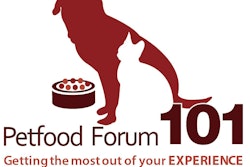Answers Pet Food, announced July 7 that it has filed a declaratory judgment complaint and is seeking injunctive relief against the Food and Drug Administration (FDA), in the United States Colorado District Court. The complaint challenges the lawfulness of the FDA’s actions, with cooperation provided by various members of the Association of American Feed Control Officials (AAFCO), by adopting a nationwide, zero tolerance standard for Salmonella in pet food that is noncompliant with federal law, unsupported by science, and beyond the FDA’s scope of power as delegated by Congress.
While the United States Department of Agriculture (U.S.D.A) permits allowable quantities of Salmonella in human food, the FDA who regulates pet food, rather than following federal law as set forth by the federal Food, Drug and Cosmetic Act (FD&C ACT), has instead adopted an unsustainable, zero tolerance standard for Salmonella presence in pet food, based on a “Non-Binding” Compliance Policy Guide (CPG). FDA guidance policies do not establish legally enforceable responsibilities, yet the adopted, supposedly nonbinding CPG has the FDA taking enforcement actions against manufacturers and imposes obligations upon the manufacturer creating legal consequences flowing from it.
The FD&C Act defines when a product is adulterated. It requires in addition to several other steps a suspected harmful substance be quantified, and a Health Hazard Evaluation be performed to determine if the product ordinarily renders it injurious to health. Currently the FDA does not follow the law for the more than 2,500 strains of Salmonella, most of which do not cause illness, but does quantify other contaminants such as aflatoxin in dry pet food, creating allowable tolerances. The Food Safety Modernization Act (FSMA) grants the FDA authority to mandate a recall, but only after following the FD&C Act.
Answers' approach to food safety and controlling pathogens is unique. In lieu of using high heat, high pressure or irradiation that denatures proteins, Answers employs fermentation, Hurdle Technology and other proprietary processes, to preserve the integrity of the food, controlling pathogens and potential pathogens by either eliminating them, reducing them or inhibiting growth whereby good bacteria can survive and out compete harmful bacteria.
Keith A. Hill, President of Lystn, LLC, stated, “Answers Pet Food would be the first party to initiate a recall if there was any indication of one of their products being a likely health risk to either pets or their owners, but when the science proves otherwise as provided by federal law, a manufacturer should not be coerced based on administrative policy view in contrast to the law.”
A report published in 2007, “FDA Science and Mission at Risk,” cited the FDA couldn’t fulfill its mission due to such issues as: a weak scientific organizational base and structure, with insufficient capacity and capability, and an inadequate information technology infrastructure. Using the CPG is easy and inexpensive to quote, but expensive for the public to present meaningful science to challenge these guides and deprives persons their due process and right to participate in regulation. As a result, the FDA, AAFCO and participating states are deciding what the public can and should feed their pets based on administrative policy views, not science or the law – taking away the public’s freedom of food choice.
Also addressed in the complaint, is the alleged extensive FDA regulatory abuse. Answers asserts the FDA is unlawfully targeting the raw pet food industry, seeking to eradicate true, raw food from the marketplace through discriminatory and selective behavior. The FDA has been open in their bias against the raw pet food industry, despite the fact that the majority of reported illnesses occur in cooked and heavily processed food.












